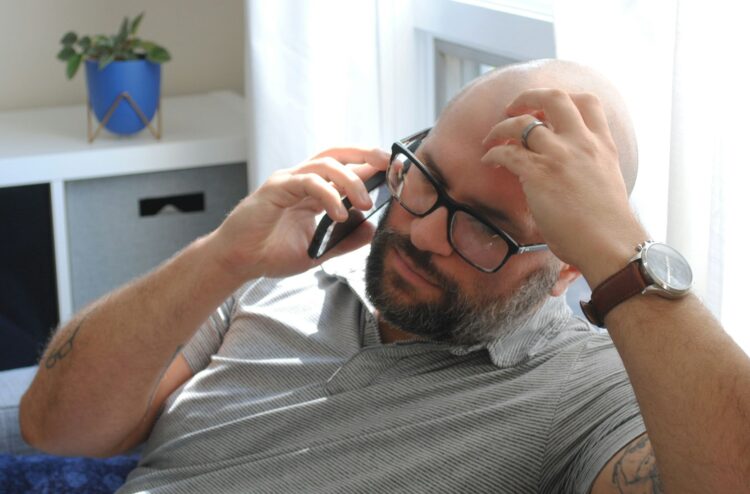
Family guilt is one of those feelings that sneaks up on you when you least expect it. You might not even realize why you feel uncomfortable or tense at dinner or during phone calls, but something deep inside keeps poking at you. Often, it’s not just about what you do, but also what you don’t do. Here are 15 reasons that guilt might be creeping in around your family.
You say no to plans because you need rest.

You turn down a family dinner or weekend trip because you’re worn out, and suddenly guilt kicks in. You start wondering if they think you’re pulling away or being selfish. You need time to recharge, but it’s hard to enjoy it when you feel like you’re disappointing someone. Even when you know you made the right choice, the guilt makes you second-guess it.
You don’t keep in touch as often as you want.

You mean to call, but work, chores, and stress keep piling up. Days turn into weeks, and you haven’t checked in. Then comes the guilt—that sinking feeling that someone in your family might be waiting to hear from you. Even a short text feels overdue. You know they’d understand, but part of you feels like you’re not doing enough to stay connected.
Your lifestyle or beliefs don’t match theirs anymore.

Maybe you’ve changed your views, habits, or goals, and you sense your family doesn’t fully get it. Every time they make a subtle comment or glance, you feel like you’re letting them down just by being yourself. You want to stay true to who you are, but the guilt shows up when you see the gap growing between you and them.
You’re doing well while they’re still struggling.

You’ve worked hard and things are finally going your way. But when your family struggles with money, jobs, or relationships, your success feels uncomfortable. You hesitate to talk about it or celebrate your wins. You don’t want to make anyone feel worse, but you also don’t want to hide your life. That tug-of-war leaves you feeling guilty no matter what you do.
You miss big family events.

Sometimes life doesn’t let you be there for everything. You skip a wedding, birthday, or reunion because of work, finances, or your mental health, and guilt follows fast. You picture everyone else gathered without you and wonder if they noticed your absence. Even when your reasons make sense, missing those moments can make you feel like you let everyone down.
You choose your partner or friends over family.

You pick a trip with your partner or a hangout with friends over a family gathering, and guilt doesn’t take long to show up. You want to build your own life and make space for the people who bring you peace, but the choice still stings. You wonder if your family thinks you’ve replaced them or stopped caring, even when that’s not true.
You avoid certain topics to prevent arguments.

You stay quiet when someone makes a comment you disagree with. You skip tough conversations to avoid drama. It keeps the peace, but it doesn’t feel right. Later, guilt creeps in because you didn’t speak up or set boundaries. You feel like you’ve lost part of yourself in trying to make everyone else comfortable, and that’s a heavy feeling to carry.
You’ve always been the “difficult” one in the family.

Maybe you ask too many questions, choose a different path, or just never quite fit in. You want to be accepted as you are, but you still feel guilty for not going along with everything. You notice when someone sighs or avoids a topic around you. Even if you’re proud of who you’ve become, part of you wonders if you’ve caused too much tension.
You can’t always give them the help they need.

Your family needs time, money, or support, but you don’t always have enough to spare. Saying no, even politely, fills you with guilt. You wish you could do more—lend money, help out, be there more often—but life pulls you in a dozen other directions. It’s hard to accept that you can love them deeply and still not be able to meet every need.
You grow out of old family traditions.

The routines and holidays you once loved feel less meaningful now. Maybe you want quieter holidays or new ways of celebrating, but saying that out loud feels like betrayal. You know traditions matter to your family, and stepping away from them brings guilt. Even if you’re just trying to make space for your own life, part of you still worries about disappointing someone.
You speak your truth, and they don’t handle it well.

You finally share something honest (a hurt from the past, a boundary you need) but instead of support, you get defensiveness or silence. Now you feel guilty for bringing it up at all. You know you had every right to speak, but their reaction makes you question whether it helped. Guilt replaces relief, and you start wondering if staying quiet would’ve been easier.
You compare yourself to your siblings.

Even if no one says it, you feel it—the invisible scoreboard. One sibling gets praise for doing everything “right,” another needs more help, and you feel caught in the middle. You feel guilty for not measuring up or for doing better. Either way, comparison leaves you feeling like you’re not enough or too much. That guilt stays with you longer than anyone realizes.
You raise your kids differently than how you were raised.

You choose a parenting style that’s more open, calm, or gentle than what you grew up with. You do it because it feels right, but it sends a quiet message: I want something different. That unspoken message can hurt your family, and you see it in their reactions. You’re proud of your choices, but guilt slips in when they seem hurt or defensive.
You don’t share every part of your life with them.

You keep certain things to yourself—not because you don’t love them, but because it feels easier or safer. Maybe you’re private about your relationship, your job stress, or personal struggles. You don’t want to worry them or deal with judgment. Still, when you withhold those parts, guilt follows. You wonder if they’d feel hurt knowing how much you keep inside.
You feel happier when you’re away from them.

You love your family, but when you’re apart, you feel lighter, less tense, more free. That realization comes with guilt. You question what it says about your relationship or whether you’re being ungrateful. You might even pretend to miss them more than you do. But feeling more at peace outside your family circle doesn’t mean you don’t care—it just means you need space to breathe.

